The North-West University is proud to showcase its academics as they climb the ladder in their academic career. Any academic who is promoted to professor or who is appointed by the NWU as “newly appointed professor” from elsewhere, is expected to deliver a professional inaugural speech within the first year of their appointment. It is meant to afford the new professor the opportunity to answer for their self, regarding their position in and contributions to their subject field, and with regard to how they understand their mission at the NWU in the context of their subject. Therefore, the inaugural speech is a high-level publishable scientific address.
The following inaugural lectures were delivered in 2022:
Economic and Management Sciences
Prof Chris van Heerden
Title: Is measuring performance irrational or inefficient?
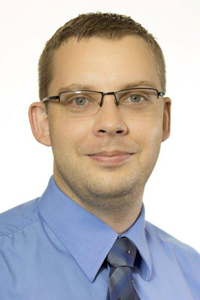
In this lecture, Prof Van Heerden argued that the irrational tendencies of human behaviour not only lead to the misguided development of methodologies and practices, but also to the wrongful implementation of existing performance measurement tools. The universal concept of performance remains inherently relative, which is why no ratio or module will ever predictably lead to success, and why benchmarking will remain a myth.
Prof André Heymans
Title: Why investors are not always rational
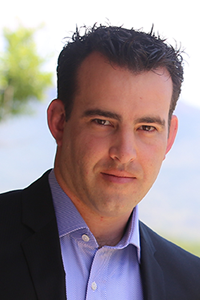
As humans we make roughly 10 000 decisions every day. Most of these decisions are not made with our energy-intensive prefrontal cortex, with which we make calculated rational decisions, but rather with our reactionary impulsive faculties that react to environmental stimuli. Investors, like all other humans, therefore fall prey to a host of cognitive biases, leading them to make systematic errors in thinking when it comes to investment decisions. So, although not all investment decisions are irrational, there are enough of them to cause significant losses to investor portfolios, a theme prof Heymans highlights in his address.
Prof Anmar Pretorius
Title: Global financial markets: Where does/Does South Africa fit in?
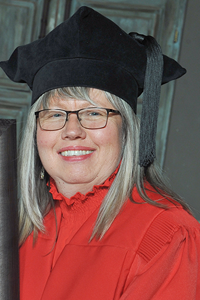
South Africa has a very sophisticated financial system – with one of the oldest stock exchanges in the world, ranked as one of the best-regulated exchanges and highly ranked based on the soundness of banks. However, despite all these attributes, South Africa is classified as an emerging market by the FTSE and MSCI and not as a developed market similar to the UK, Israel, etc. This address indicated that the performance of the South African bond market corresponds with those of other advanced emerging markets, while the performance of the South African stock market is positioned somewhere between emerging and developed markets.
Prof Alfred Henrico
Title: Developing pervasive skills in higher education: reflecting on an evolutionary journey
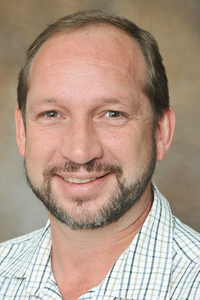
Managers develop and implement strategies to obtain a competitive advantage in the markets they are operating in. A competitive advantage can only be sustained until rival businesses can imitate or replicate the sources of competitive advantage. The most difficult sources of competitive advantage to replicate or imitate are managers’ pervasive skill sets, including critical and creative thinking, logical thinking, problem-solving, business awareness, communication and teamwork skills. Pervasive skills development should receive more attention in higher-education teaching and learning to align the needs of the working environment with the offering of higher-education institutions. With his research, Prof Henrico invested in pervasive skills development in higher education. The simulative teaching strategy he developed equips graduates with the pervasive skills they need to contribute to the competitive intelligence and competitive advantage of their future employers.
Education
Prof Muchativugwa Liberty Hove
Title: Roots and routes: A dialogic imagiNation of literary-linguistic-cultural representations
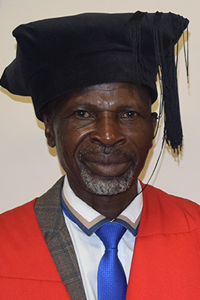
Prof Hove commenced the lecture with what he considers a timeless poem, A Dream Deferred, penned by African American poet Langston Hughes. It was on these six rhetorical questions that he mapped his research journey and the process of developing in the academic world. His impassioned rendition teased the problematics of re-searching and re-positioning in critical language and literary arts education, at each point reinforcing his quest for purpose and relevance. He raised pertinent questions relating to the literary in literature, reader reception, epistemological and aesthetic frames and archival use. Some of the abiding challenges relate to how local writers or global writers take the novel or the short story as the most appropriate form at the edges of metropolitan cultures and the dialogic imagiNation of literary-linguistic-cultural representations. Given language, race, identity and culture contestations, Prof Hove asked how we could recover and emplace orality at the centre of conversations on identity constructions, the performances of democracy and social and epistemic justice for contemporary times.
Prof Marietjie Havenga
Title: Cooperative problem-based learning in Information Technology: Active learning for the Fourth Industrial Revolution
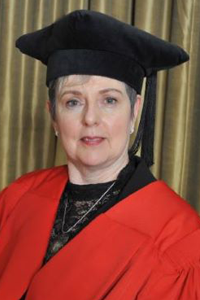
In this lecture, Prof Havenga argued that the implementation of cooperative problem-based learning as a teaching and learning strategy can contribute to active and responsible learning skills in students for the Fourth Industrial Revolution. The following key points were addressed: the teaching and learning of information technology; teaching and learning in higher education: passive vs active learning; the incorporation of problem-based and cooperative learning to promote the development of active learning in students; the development of self-directed learning as an essential skill for the future; and cooperative problem-based learning for the Fourth Industrial Revolution – a research agenda.
Prof Aubrey Golightly
Title: Problem-based learning to foster self-directed learning in geography education
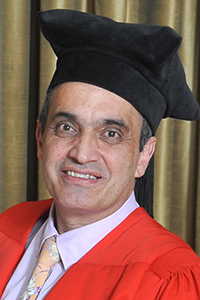
“To teach I would build a trap such as that, to escape, my students must learn” (Robert M. Chute, 1971).
In the literature, special mention is made of problem-based learning (PBL) as a teaching and learning strategy that can cultivate and develop 21st-century skills like self-directed learning, problem-solving, critical thinking, collaboration and communication, as learning is structured in real-world contexts. As PBL requires students to take responsibility for their learning, it is likely to result in better development of self-directed learning skills as well as increased motivation for students to learn. In this inaugural lecture, Prof Golightly’s central argument was for the effective implementation of PBL in geography teacher education to help foster student teachers’ self-directed learning skills.
Prof Shan Simmonds
Title: Human rights (education) in a post-human world: thinking with curriculum inquiry
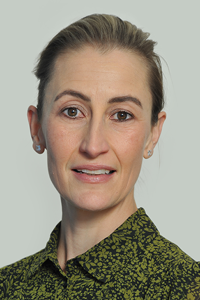
The transformative potential of human rights education lies in its ability to make visible societal material-discursive complexities. It can provide a language to interrogate society and how it continually normalises ways of living and being in the world. However, South Africa’s national curriculum remains de-contextualised due to human rights (education) and liberal universalist and humanistic tendencies. Posthumanism, understood as an opportunity for humanity to re-invent itself, can be embraced as one avenue to displace and dispose of humanness as the anticipated outcome of education. In her intellectual work, Prof Simmonds playfully enacts the possibilities of posthumanism to (re)think human rights (education) with curriculum inquiry.
Engineering
Prof Dawid Serfontein
Title: The future of electricity generation in South Africa, the place of nuclear power in it and what you can do about it
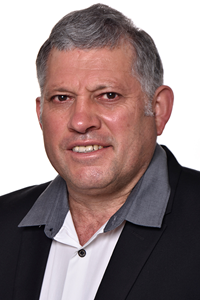
Previously, Eskom built a massive empire on cheap coal and nuclear power. However, recently our cheap coal has been used up, labour costs have spiked and Japan suffered from the Fukushima nuclear disaster. Therefore, the cost of coal and nuclear power increased exponentially, just as the cost of solar and wind power dropped dramatically. Unfortunately, Eskom refused to make the switch to wind and solar, backed up by gas power, power storage and Digital Dynamic Demand Response, and Eskom is now failing. However, this creates opportunities for each of us to get involved in the power generation business.
Health Sciences
Professor Choja Oduaran
Title: Integrating thoughts and behaviours for the resolution of life balance: Clinical psychology for a troubled world
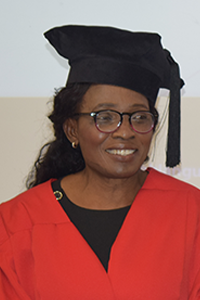
We live in a troubled world. So troubled that significant cohorts of our populace are denied the opportunity to live the kind of lives that are overtly stable, peaceful and progressive. Therefore, attaining a reasonable balance across life domains becomes problematic. The distinguished lecturer today told us that whenever large cohorts of our populace are denied the opportunity to express themselves and harvest equitably all the possible resources made available in the environments and/or contexts in which they exist as human beings, their confidence in balanced life demands is eroded. Such inappropriate negligence from concerned stakeholders falls short of fairness, equity, equality and all that democracy represents in the world today. Prof Oduaran reflected on the underlying factors and possible outcomes of life balance across domains such as learning, work, leisure and family.
Prof Dané Coetzee
Title: Kinderkinetics: There’s more than meets the eye
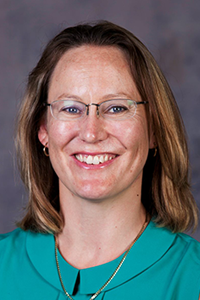
Vision is more than seeing clearly, it is also about making sense of what one sees, and how the brain processes the information. If the brain struggles to make sense of what the eyes see, it could lead to various visual perception problems. Children with undetected/uncorrected vision problems in the first few years will experience problems with the development of visual acuity, binocular vision and ocular motor control skills, which could have an impact on the development of the child’s motor skills and could have a significant impact on their learning abilities. Evidence has shown that Kinderkinetics could improve the delays in the development of ocular motor control skills and improve the children’s motor skills.
Prof Jan Steenekamp
Title: Developing improved delivery systems for drugs: the value of functional excipients and quality-by-design principles
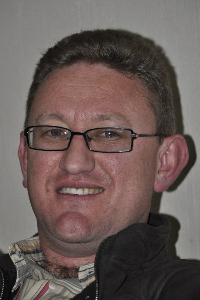
The lecture highlighted the importance of solubility and membrane permeability for the absorption and bioavailability of drugs. The formulation of oral solid dosage forms with an emphasis on quality-by-design (QbD) principles as encompassed in the Sediment Delivery Model Expert Diagram System (SeDeM EDS) and the use of functional excipients was discussed. The SeDeM EDS was initially developed as a QbD instrument for the formulation of conventional solid oral dosage forms. It was shown that the SeDeM EDS can be successfully employed in the formulation of multiple-unit pellet system (MUPS) tablets containing functional excipients.
Prof Ben Coetzee
Title: Suspend load shedding – hack the nervous system for optimal movement and sport
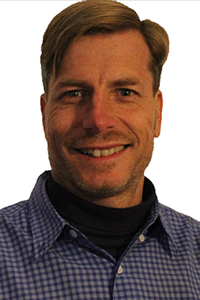
Successful integration of received sensory information and ongoing sensory feedback is needed to generate the most efficient motor plan to execute a given movement and for motor plan refinement to optimise current and future movement execution. However, somatosensory input can be disrupted by injuries, stress and anxiety, among other things, which lead to alterations in performance and movement control strategies. These alternations will only be improved and prevented using different “hacking” techniques that are aimed at regaining and improving somatosensory input and neuromuscular control.
Law
Prof Henk Kloppers
Title: Public policy reshaping estate planning: Recent developments
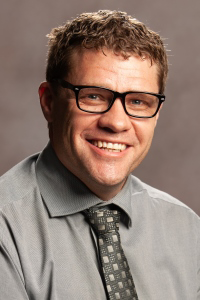
This inaugural address considered the following question: To what extent is public policy shaping current estate planning through the evaluation of recent case law? This question raises two distinct (and sometimes overlapping) themes, and in essence requires a balancing act between freedom of testation on the one hand and constitutional values and public policy on the other. The address provided a brief overview of some aspects that are important to understanding the two primary themes. These aspects include an overview of constitutional values and rights; Bill of Rights litigation and the application and limitation of the Bill of Rights. Freedom of testation as a central theme was also considered before the notion of public policy as a limitation to freedom of testation was evaluated to determine its content. An overview and evaluation of the King (CC) and Wilkinson (CC) cases followed to determine whether they guided estate owners when drafting wills to ensure that the provisions in the will do not offend public policy.
Prof Elmien du Plessis
Title: Land, law and (Afrikaner) nostalgia
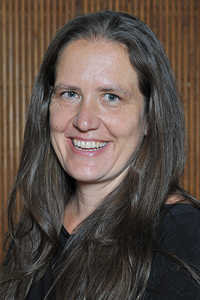
This lecture investigated the influence of nostalgia (Afrikaner nostalgia in this case) on law making. In searching for a title, Prof Du Plessis stumbled across the desire to combine her love for history and art, her knowledge of land issues and her profession – the law – in one lecture. This allowed her some freedom to not have definite answers but to touch on things she thinks needs thinking about in the future.
Natural and Agricultural Sciences
Prof Indra Bahadur
Title: From toxic to greener world
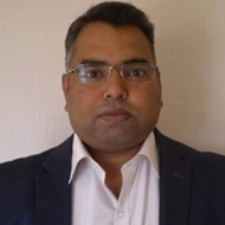
The lecture was about the possible replacement of volatile organic compounds that are currently used in the various industries by green materials: ionic liquids (ILs) and deep eutectic solvents (DESs). These materials have been explored as alternative green solvents to minimise environmental/health effects and lower energy costs. They have gained significant interest as a class of green solvents due to their unique physical and chemical properties. It is envisaged that these materials and their solutions could lead to the development of more efficient and environmentally friendly solvents for industrial processes. This is possible by obtaining experimental data using highly accurate instruments for the calculation of physicochemical and thermodynamic properties, which are required for chemical process designs such as separations. These investigations involve using ILs and DESs as potential green solvents. The application of ILs and DESs could be extended to different industries, for example, a corrosion inhibitor for the steel/metal industries; for the transportation of gas in the transport industries; for the dissolution of cellulose/polymer for the bio product/polymer industries and to minimise environmental/health effects in pharmaceutical industries. ILs and DESs will be investigated for the bio refining of lignocellulosic material to produce value-added chemicals, bio plastics or biofuel.
Prof Cobus Kriek
Title: When God “intervenes” in science
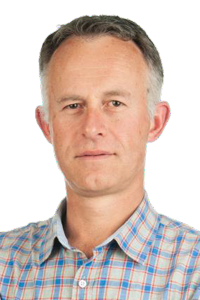
Prof Kriek’s research career started out investigating the heterogeneous photocatalytic reduction (supplying of electrons) of dissolved platinum group metals. This finds application as a means of recovering small quantities of these noble metals from effluent streams that result from the refining process(es) of these metals. Through “an act of God” his research has subsequently moved into photo-electrocatalysis, a combination of photocatalysis and electrocatalysis. Through no doing of his own, his research path crossed with europium tellurium oxide. Subsequent investigation revealed that this material is a semiconductor, and that prolonged illumination increases its electrocatalytic activity and “charges” the material, rendering it active in the dark. The activity of this material surpasses that of TiO2, which is internationally deemed to be the photocatalytic standard. This work has resulted in the filing and awarding of two patents and work is currently underway to investigate this type of material for the conversion and storage of solar energy as (electro)chemical energy.
Prof Du Toit Strauss
Title: Living with cosmic radiation
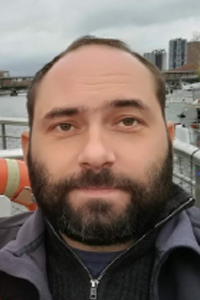
For the typical person, the effect of cosmic radiation plays no role in their everyday life. However, once we start to exit our protective bubble, formed by the Earth's atmosphere and geomagnetic field, radiation due to these cosmic particles becomes a serious health concern. This is true for flight crew and astronauts on board the International Space Station, but even more so for planned crewed missions to the Moon, Mars, and eventually beyond our solar system. The goal of cosmic ray research is to be able to model and predict these radiation levels and thereby mitigate any harmful effects. Prof Strauss described their efforts at the North-West University (NWU) to fulfil this objective.
Prof Eugene Engelbrecht
Title: On the transport of cosmic rays in the heliosphere and beyond
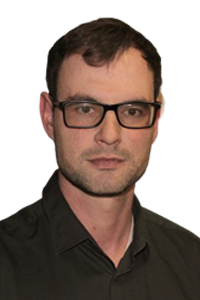
Modelling the transport of cosmic rays throughout the heliosphere, the region dominated by plasma originating from the Sun, is no small endeavour. This is broadly due to the fact that such a study requires insight into both the macroscopic behaviour of heliospheric plasma properties on scales of astronomical units, and much smaller scale quantities relating to plasma turbulence. In this talk Prof Engelbrecht broadly introduced the grand challenge of modelling cosmic ray transport from first principles, with emphasis on work done at the North-West University (NWU). Furthermore, prospects for future work pertaining to cosmic ray transport in astrospheres around other stars were also discussed.
Prof Roelof Burger
Title: Scholarship that matters – Out of the cafeteria and into the pub
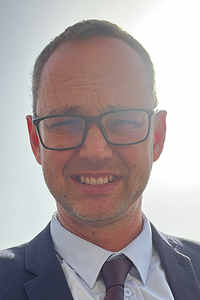
The world in general, and South Africa in particular, needs academics to help solve pressing social, environmental, civic, economic and moral problems like never before. Prof Burger reflected on how geography scholars can step out of their ivory towers and into the real world to research, collaborate, teach and engage with communities around them. The quintuple helix of innovation model suggests that the spheres of academia, the government, industry and society within the perspective of the environment are the key ingredients to stimulate and drive knowledge production and innovation. Using this model, he presented examples from his experience as a physical geographer on how they seek solutions to poor air quality and weather modification as engaged scholars. For their work to make an impact, they must leave the protected environment of the university cafeteria and seek authentic problems to work on, meeting people where they live their lives.
Prof Sandra Barnard
Title: Water, giving me a legacy
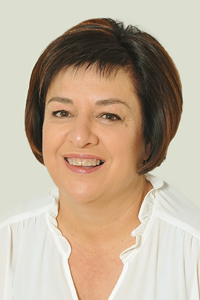
The core focus of Prof Barnard’s research was harmful algal blooms and the associated quality of South African freshwater resources. Her research programme was built on four united pillars: basic water quality and phytoplankton biodiversity, phytoplankton eco-physiology, molecular ecology and bioinformatics. The deterioration of water quality needs to be constantly monitored, together with phytoplankton diversity and biomass. Results emphasised the effect of climate change on the impact of land use and water quality. It further documented the phytoplankton assemblages in these river systems.
Prof Estelle Taylor
Title: Bridging the gap between academia and industry: industry collaboration, soft skills and research paradigms
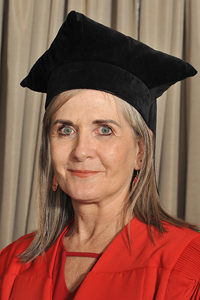
This presentation included an overview of research conducted on industry collaboration and the use of industry advisory boards (IABs) that resulted in guidelines and best practice protocols on topics such as membership, meetings, agendas, discussion items, requirements of members, planning, meeting attendance and documentation, and publication of minutes and web sites. An overview of research conducted on the soft skills of IT students was also included. A comprehensive literature review showed that exhibiting soft skills is strongly associated with the success of IT graduates. During this research, important skills were identified, and the development of these skills was investigated.
Prof James Chibueze
Title: The mystery of star birth revealed
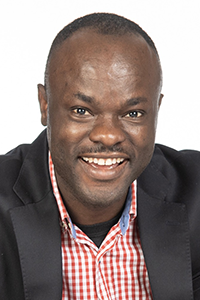
High-mass stars play key roles in the chemical and morphological evolution of their host galaxies, however, details of how they form remained elusive. Massive stars in the Milky Way are typically located more than 3 000 light years away from us, evolve fast and form in clusters, which therefore makes them difficult to study. Using the high-resolution radio interferometric method at centimetre and millimetre wavelength, Prof Chibueze explored various evolutionary stages of high-mass stars and unveiled some of the processes involved in the formation of these big stars in our Galaxy.
Prof Ernst Drewes
Title: Regions: A view from the top
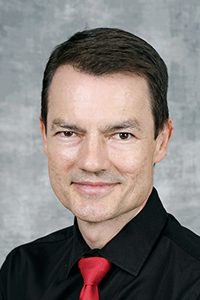
The processes of regional delineation and balancing economic growth led to the global recognition and application of regional planning and policy formulation. Every town, city and metropolitan area in the world forms part of an organic link with numerous other cities, regions and countries, and – importantly – faces unique challenges and interpretations of the impact of morphological development, 4IR and Innovation Waves. Prof Drewes’s research reflected on the suitable integration of technology into appropriate regional policy, customised for each unique urban system. Appropriate regional policy is the outcome of the said integration process, forming the foundation of suitable regional planning and development.
Prof Amare Abebe Gidelew
Title: Matters of gravity: the hows and whys of cosmic evolution
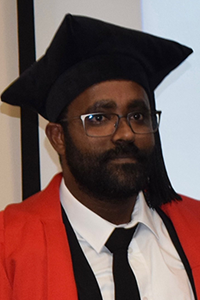
This lecture gives a brief account of one of humanity’s greatest adventures: trying to understand the origin, evolution and ultimate fate of the universe. It shows that our understanding of the universe and the physical processes involved in its evolution has, in itself, evolved over time. It is illustrated that the most important of these physical processes is gravity and that our current understanding of the theory of gravitation is at a crossroads. Prof Gidelew’s research highlights the understanding of the evolution of the universe through alternative gravitational theories, collaborations and student supervision involved, and the future directions of research envisaged are described.
Prof Tanja Verster
Title: Predictive modelling: A peek into the future
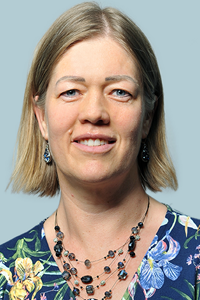
Predictive modelling uses known results to create, process and validate a model that can be used to forecast future outcomes. For example, in a financial application, predictive modelling can be used to develop models that assess past payment behaviour on loans to predict whether customers will repay their loans in future. We peek into the future of predictive modelling by considering four factors that influence financial predictive modelling: industry collaboration, machine learning, financial crises and financial technology (fintech).
Prof Pieter van Zyl
Title: No man is an island … we are connected through the atmosphere
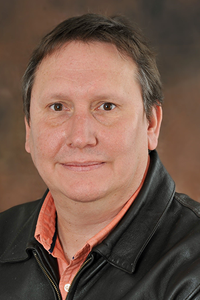
Besides the obvious – that we are all connected through the atmosphere – this presentation focused on the general aspect of this famous phrase – the interconnectedness of people! This address took a walk through the foundation, the extended family, the friends, the current family, the inspiration, the academic fathers, the colleagues, the students and the collaborators, without whom this journey of becoming a professor would not have been possible. Prof Van Zyl’s atmospheric chemistry research activities were explored through the main collaborative programmes/projects through which his research is conducted, which showcased how extensive collaborative research led to comprehensive assessments of atmospheric chemical composition in South Africa.
Prof Leonard Santana
Title: Too small, then too big: The evolution of statistics
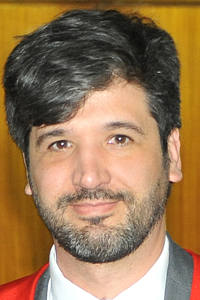
The rich and diverse history of statistics is explored in this discussion, emphasising the role of the statistician in small and big data problems. Specifically, before the 21st-century, statisticians only had small data sets at their disposal, necessitating innovation to overcome this limitation. However, recent years brought a radical increase in data availability and computational power, allowing analysts to tackle more complex problems. Unfortunately, far from solving all their problems, this “big data” brought its challenges. We explore the fact that modern statisticians now involve themselves in meeting the theoretical and computational challenges posed by the worlds of both “big” and “small” data.
Theology
Prof Vhumani Magezi
Title: African publics and the role of Christianity in fostering humanhood: a public pastoral care proposition within African pluralistic contexts
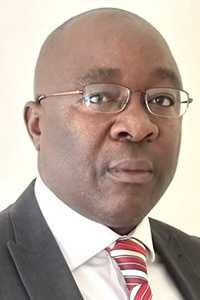
The lecture explored the contribution Christianity has made to humanhood and quality of life. It positioned the aspiration of faith for human good and shalom as a central lever to shape and motivate people and communities of faith to play a more intentionally developmental role in society. It established that promoting and upholding quality humanhood or personhood (quality of life) are the ultimate goal that multilateral institutions, continental and regional bodies, as well as nations, strive to achieve. Accordingly, Theology and Christian religion, from a faith perspective, should contribute.
Prof Alfred Brunsdon
Title: Are we there yet? Probing the notion of contextualising Practical Theology and pastoral care in a post-COVID glocal African context
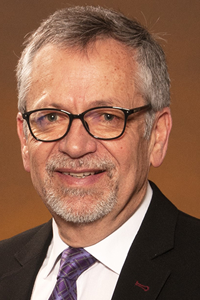
The lecture probed the state of contextualising Practical Theology and pastoral care in an African context against the background of persisting Western epistemologies and the decolonisation discourse. While it argued that contextualisation will remain an ongoing process due to the fluid nature of the African context, it also pointed out that the dawn of the post-Covid era presented urgent agenda points, rendering the journey incomplete. Three areas for future practical theological and pastoral consideration were highlighted, namely the consequences of intensified socio-economic realities, implications of the disruption of traditional religious culture and post-Covid challenges to higher education. The lecture concluded that a “glocal” lens, which is mindful of both local and global needs, would be the best way forward, recognising Africa as part of the global village.
